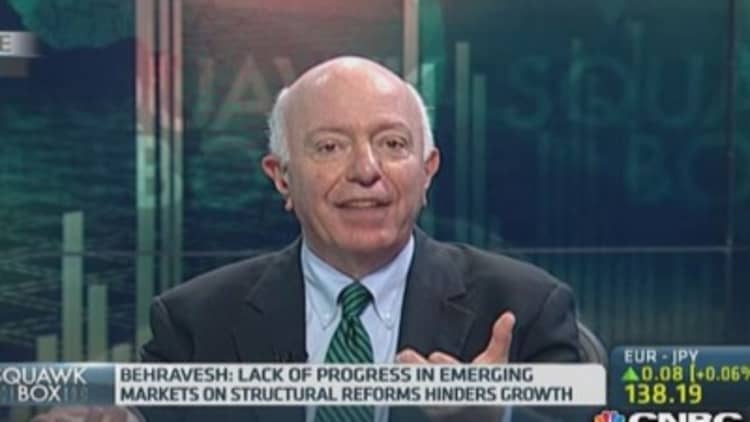
The world must act to contain the risk of another devastating housing crash, the International Monetary Fund warned on Wednesday, as it published new data showing house prices are well above their historical average in many countries.
The warning from the IMF shows how an acceleration in global house prices from already high levels has emerged as one of the major threats to economic stability, with countries making limited progress in keeping them under control.
Read MoreMany seek new homes near cities but are priced out
Min Zhu, the IMF's deputy managing director, said the tools for containing housing booms were "still being developed" but that "this should not be an excuse for inaction".
House prices "remain well above the historical averages for a majority of countries" in relation to incomes and rents, Mr Zhu said in a speech to the Bundesbank last week, which was only released on Wednesday because it clashed with a European Central Bank announcement.
"This is true for instance for Australia, Belgium, Canada, Norway and Sweden," he said.
In the wake of the global recession central bankers have cut interest rates to record lows, pushing house prices to a level that the IMF regards as a significant risk to economies as diverse as Hong Kong and Israel.
Read MoreUK faces housing and productivity risks: IMF
In Canada, for example, house prices are 33 per cent above their long-run average in relation to incomes and 87 per cent above their long-run average compared with rents. The figures for the UK are 27 per cent relative to incomes and 38 per cent relative to rents.
The IMF's new global house price index shows a fresh acceleration, with prices up by 3.1 per cent on a year ago. House prices are rising fastest in emerging markets, with prices up more than 10 per cent on a year ago in the Philippines, 9 per cent in China and 7 per cent in Brazil.
"In some cases house prices are recovering from a sharp correction during the Great Recession," Mr Zhu said. "In other cases, house prices have continued an upward march with only a bit of moderation during the Great Recession."
Read MoreLennar CEO:Why housing is still 30% below normal
House prices fell most heavily in peripheral European countries, down by 7 per cent on a year ago in Greece, 6.6 per cent in Italy and 5 per cent in Spain.
Mr Zhu said that even though the tools for controlling house prices were new, countries must start using them immediately. He pointed to options including limits on mortgage lending relative to house values and incomes; higher capital requirements for banks making risky loans; and stamp duties to damp foreign demand for investment properties.
"We need to move from 'benign neglect' to an 'all of the above' approach when it comes to policy choices," said Mr Zhu, adding that policy makers could combat the shortcomings of different approaches with "the interlocking use of multiple tools".
More from the Financial Times:
Hackers claim attacks on World Cup sites
GoPro seeks to raise up to $427m in IPO
EU tax probe into Apple, Starbucks and Fiat
In the US, house prices are rising fast but not overvalued, coming in at 13.4 per cent below their long-run average relative to incomes, and 2.6 per cent above their long-run average relative to rents, according to the IMF's numbers.
The world's cheapest housing market is Japan, where housing is 41 per cent below its long-run average relative to incomes and 38 per cent relative to rents. Germany and Estonia also appear cheap, with prices in both more than 10 per cent below their long-run average compared with incomes and rents.

